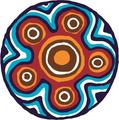Year 1 Term 3 Overviews

Dear Year 1 Families,
Welcome back for Term 3! Year 1 students have exhibited their clear understanding of the expectations and values at DCC in the first few weeks back and have jumped straight back into their learning.
Below, you will find a brief outline of the core curriculum areas and what your children will be learning about this term. We encourage you to have ongoing conversations with your children about the content below in order to strengthen their learning in the learning space.
In reading, students will continue to practise a range of reading strategies to support them in comprehending the texts they read. Students will learn to make predictions before, during and after reading using information from the text and their prior knowledge to support them in understanding the text. Students will also identify different punctuation, such as full stops, talking marks and bold words to help them read fluently. Students will be making inferences about how a character is feeling using evidence, particularly text clues, to support their reasoning as well as summarising important information in a text. Students will explore what lessons the authors are trying to teach the readers in their stories.
In writing, students will focus on writing fiction texts. Students will be exposed to mentor texts showing how authors utilise different ideas, word choices and punctuation to make their writing interesting. Students will be encouraged to use adjectives, adverbs, action verbs and punctuation to add meaning to their writing. Sentence length, structure and conjunctions will also be explored to add to text fluency. Students will understand the importance of correctly applying full stops and capital letters, as well as experiment with different types of punctuation. Each week, students will engage in SMART Spelling, phonics and handwriting practise to help improve their understanding of spelling patterns and letter formation.
In numeracy, we will be continuing to build on our understanding of place value by exploring the use of materials such as MAB blocks to model 2 or 3 digit numbers. Students will practise representing and solving different subtraction problems using a range of strategies (counting up, back and difference) and materials (number lines, tens frame, counters). They will develop their knowledge of halves by engaging in real life scenarios that model sharing. Students will be learning to model sharing through practical situations, for example “I have 8 lolly bags to share with 4 friends.” Year 1s will continue to explore measurement using informal units to order objects according to length, mass and capacity.
At the end of the term, students will create and ask their own questions in order to collect information. They will draw and create picture graphs to represent their information.
In SEL (Social Emotional Learning), Year 1 students will develop a positive awareness of gender norms and practise respectful and gender friendly behaviours. Students will be building on their understanding that they can play and learn with all students even those who have different opinions, likes and dislikes. Through this students will begin to develop an appreciation of people’s differences.
Throughout the first 4 weeks in inquiry, students will be exploring the theme of ‘Our Land, Our Stories’. Year 1 students will investigate the driving statement: ‘Totems are significant in Aboriginal and Torres Strait Islander cultures’ by exploring native Australian animals and different examples of Aboriginal totems and their significance. Students will explore their own personal strengths and traits and align them to an animal with similar traits, which will become their own totem. From this, students will design and create an artwork to represent their totem, and write about how they will protect it.
For the remainder of term 3 year 1 students will investigate their local area, and the traditional owners of the local land, the Bunurong People. Students will collaborate to research the guiding statement: “People create communities and are connected by land, water and culture” and explore questions such as, “how am I connected to the land?”, “how am I connected to the animals” and “how am I connected to the water.” Students will use this new understanding to create a personalised Acknowledgement Of Country.
Ways to Help Your Child At Home:
Home Reading - Please ensure that your child is reading every night at home for at least 20 minutes, following up with a conversation about the book (this is very important to help them verbalise their understanding). Please see your child’s homegroup teacher if you are having trouble accessing Reading Eggs or Wushka.
Learning Goals - Your child’s individualised learning goals are listed on Compass. There is a reading goal, a maths goal, a writing goal and an Inquiry or SEL (social and emotional learning) goal for your child. Please read these and support your child by going through the suggested strategies to help at home. These goals are changed every 5 weeks, and you will also be informed of your child’s achievement of these goals. If you have any questions regarding your child’s goals, please see your child’s teacher.
We look forward to continuing our journey with you and your child in 2023. Please come and see your child’s teacher if you have any questions or concerns. After school is best for a quick chat, otherwise send your child’s teacher an email to set up an appointment time for a longer chat.
Year 1 Team
